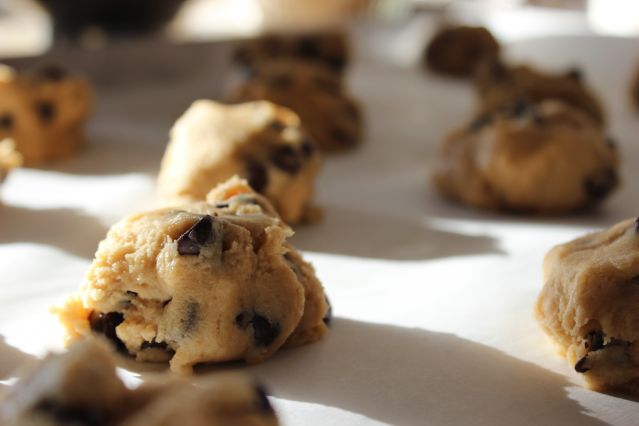The U.S. Food and Drug Administration recently announced a voluntary recall for ready-to-bake refrigerated Nestlé Toll House Cookie Dough products. The recall was issued due to the potential for food-grade rubber piece contamination. Representatives from Nestlé USA did not immediately return Red Tricycle’s request for comment.
If you have the recalled product at home, read on for important information.
Recalled Product Description: Nestlé Toll House Cookie Dough
The current recall is for ready-to-bake refrigerated Nestlé Toll House Cookie Dough. The following products are not part of the recall: Nestlé Toll House Morsels, Nestlé Toll House Ice Cream Sandwiches, Nestlé Toll House Edible Cookie Dough, and Nestlé Professional SKUs.
Only products with batch codes from 9189 through 9252 are affected. The recall includes over 25 cookie dough products. For a full list visit the FDA’s website here.
Why the Cookie Dough Was Recalled
The recall was initiated after Nestlé USA received reports of food-grade pieces of rubber in some products. According to the FDA, Nestlé has identified the source of rubber contamination and has already resolved the problem. But if you have items produced prior to this, you should not consume them.
As of now, there are no reports of illnesses or adverse reactions.
How to Tell If Your Cookie Dough Was Recalled
Look for the four-digit batch code. This is located after the “use or freeze by” date and before the number 5753. Impacted batch codes are numbered 9189 through 9295. To check your cookie dough by product in addition to the batch code, consult the FDA’s list here.
What Consumers Can Do
If you have a recalled product, don’t eat it. Keep your proof of purchase and contact Nestlé Consumer Services via email at nestleproductinquiry@casupport.com.
—Erica Loop
Photos: Courtesy of the U.S. Food and Drug Administration
RELATED STORIES
Recall Alert: Apples Recalled Over Listeria Concern
Recall Alert: More Than 24,000 Pounds of Raw Beef Recalled
Recall Alert: Contigo Kids Cleanable Water Bottles Pose Potential Choking Hazard











